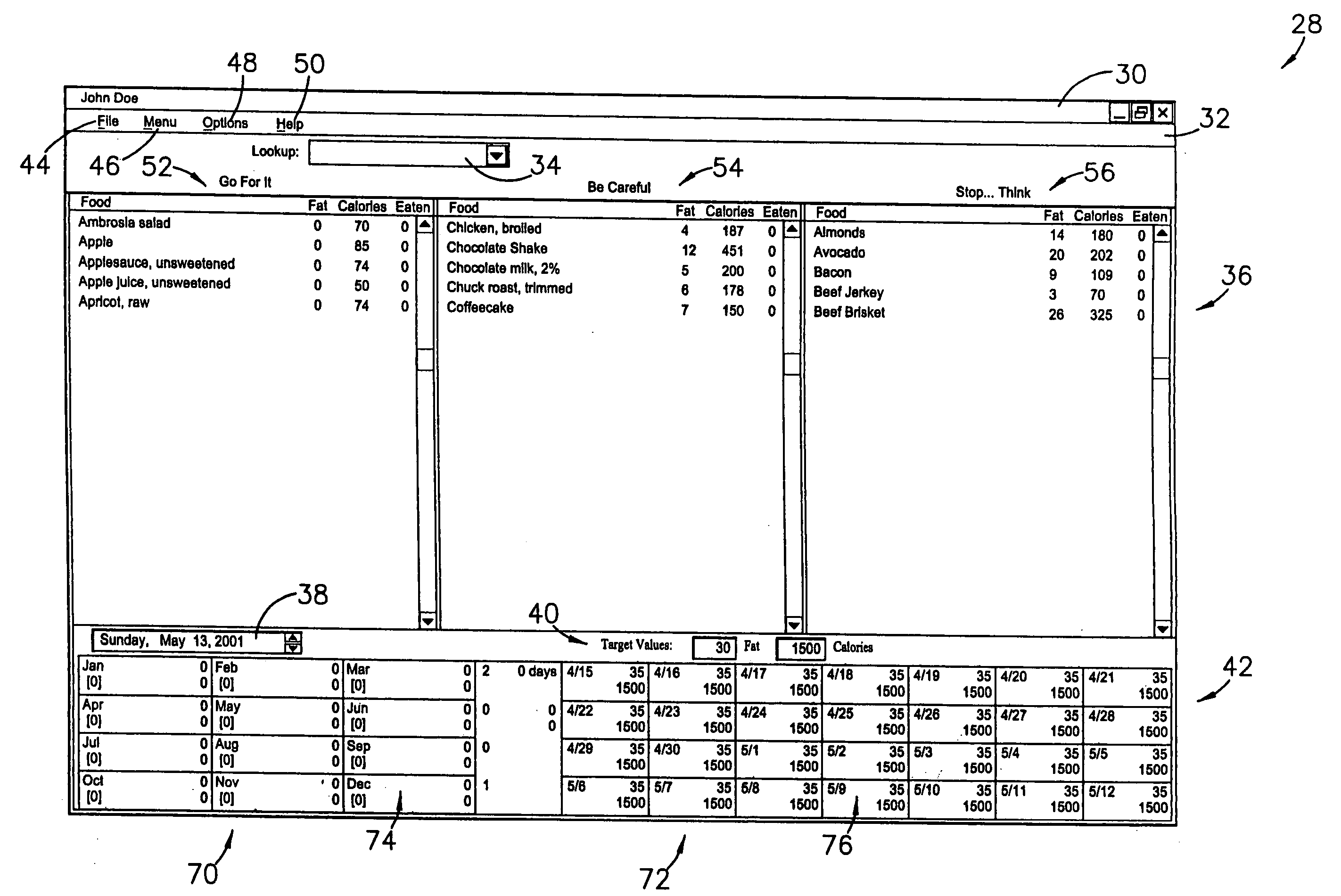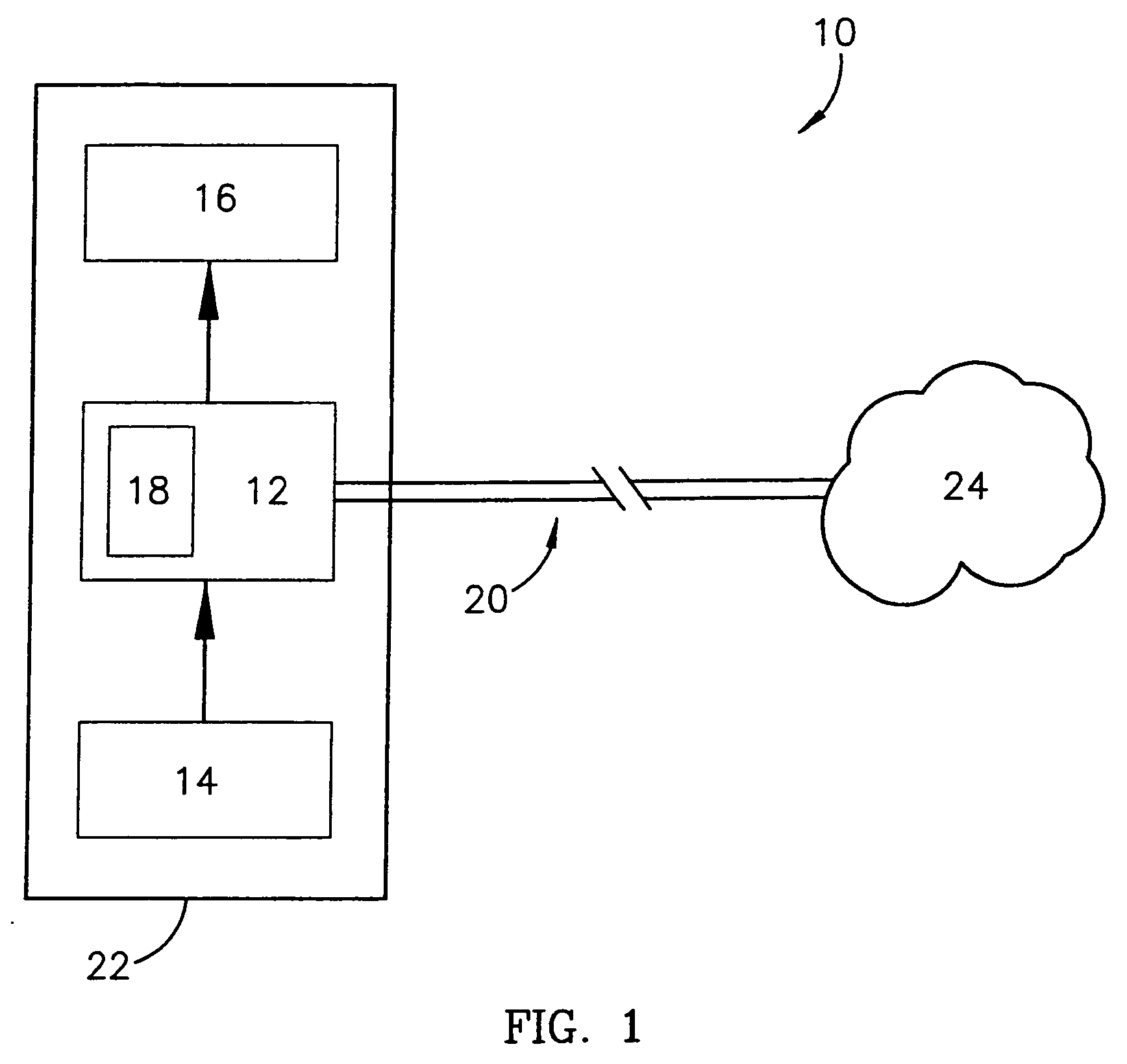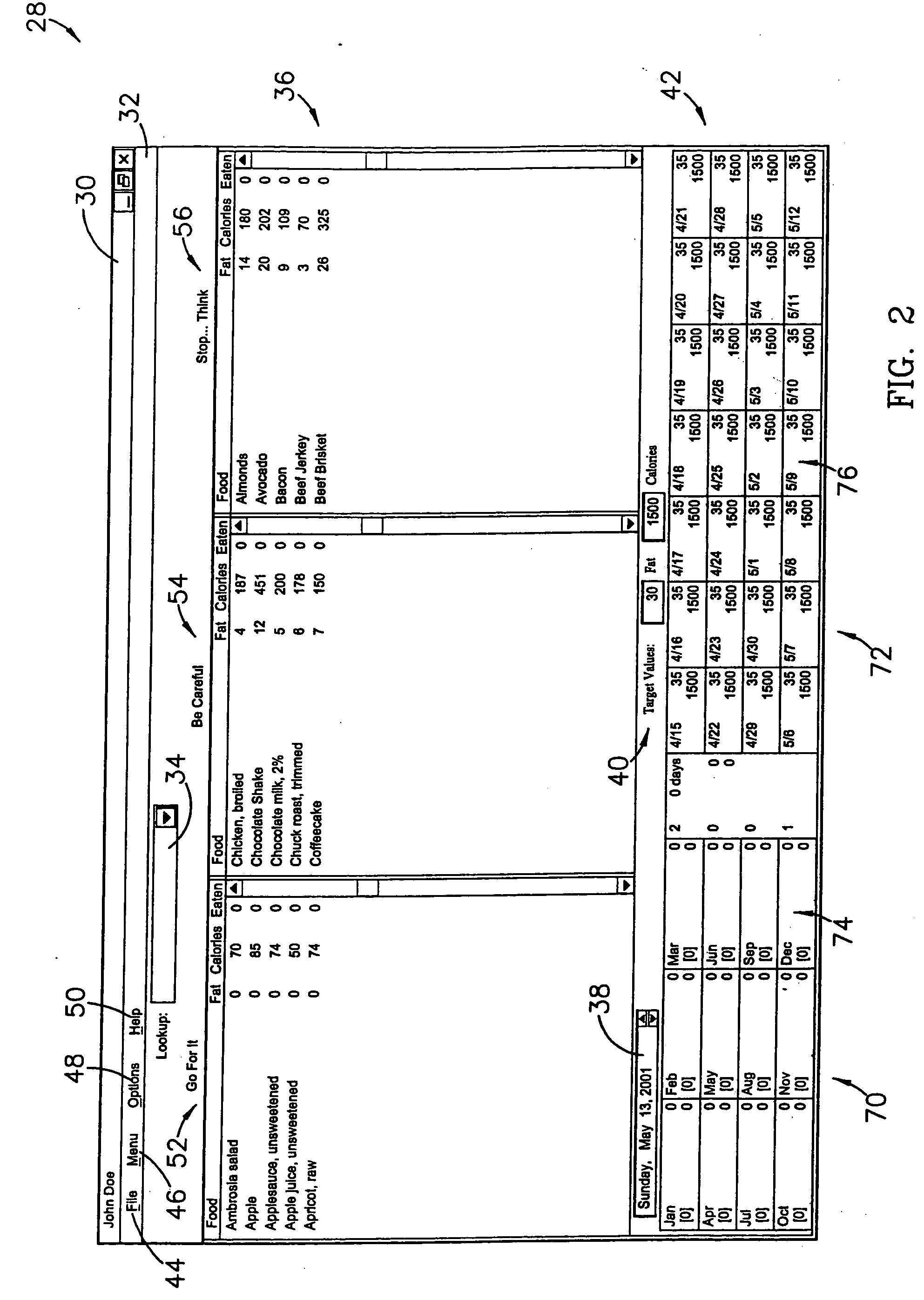Computer program, method, and system for monitoring nutrition content of consumables and for facilitating menu planning
a technology of nutrition content and computer program, applied in the field of computer program, method or system for providing nutrition content information for consumables, can solve the problems of reducing the likelihood of consistent use, difficult to conveniently tailor, and a number of limitations and disadvantages of printing resources, so as to facilitate faster and easier evaluation
- Summary
- Abstract
- Description
- Claims
- Application Information
AI Technical Summary
Benefits of technology
Problems solved by technology
Method used
Image
Examples
Embodiment Construction
, below.
BRIEF DESCRIPTION OF THE DRAWING FIGURES
[0014] A preferred embodiment of the present invention is described in detail below with reference to the attached drawing figures, wherein:
[0015]FIG. 1 is a block diagram depicting a system or apparatus that may be used to implement a preferred embodiment of the present invention;
[0016]FIG. 2 is a first screen capture showing a first preferred interface screen generated by a preferred embodiment of a computer program of the present invention;
[0017]FIG. 3 is a second screen capture showing a second preferred interface screen generated by a preferred embodiment of a computer program of the present invention;
[0018]FIG. 4 is a third screen capture showing an input window generated by a preferred embodiment of a computer program of the present invention;
[0019]FIG. 5 is a fourth screen capture showing a help window generated by a preferred embodiment of a computer program of the present invention; and
[0020]FIG. 6 is a fifth screen ca...
PUM
 Login to View More
Login to View More Abstract
Description
Claims
Application Information
 Login to View More
Login to View More - R&D
- Intellectual Property
- Life Sciences
- Materials
- Tech Scout
- Unparalleled Data Quality
- Higher Quality Content
- 60% Fewer Hallucinations
Browse by: Latest US Patents, China's latest patents, Technical Efficacy Thesaurus, Application Domain, Technology Topic, Popular Technical Reports.
© 2025 PatSnap. All rights reserved.Legal|Privacy policy|Modern Slavery Act Transparency Statement|Sitemap|About US| Contact US: help@patsnap.com



